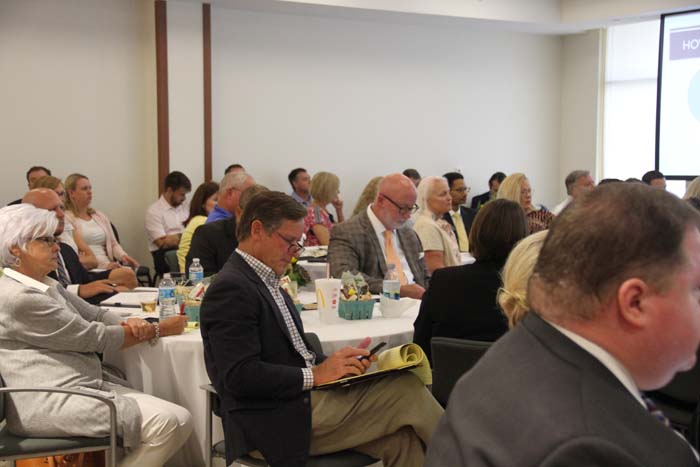Health Care Reform Task Force focuses on improving rural care
Published 11:09 am Wednesday, July 12, 2017

- Many members of the public attended, leaving standing room only.
TIFTON — The third meeting of Georgia’s Health Care Reform Task Force was held July 10 at Tift Regional Medical Center.
Bill Richardson, CEO and president of Tift Regional Medical Center, approves making fundamental changes to how health care is delivered.
“We cannot maintain the program as its been for years,” he said. “We have to transform the delivery and financing of healthcare in ways that going to allow us to be sustainable in the long term.”
Lt. Governor Casey Cagle, along with Sens. Renee Unterman, Dean Burke, Chuck Hufstetler, Ben Watson, Kay Kirkpatrick, Jack Hill and Doc Rhett, were in attendance.
Cagle addressed several issues during the meeting.
“I understand that for too many families across our state health care is either unaffordable or out of reach,” he said. “What we want to do is create some real innovation around the delivery system.”
He wants to focus on preventative care and avoid the high cost of emergency room care, bringing better quality care along with lower costs.
“We must improve the way we pay for and deliver health care to patients across our state.”
Representatives from Tift Regional Medical Center and Emory University addressed the members of the task force.
Representatives from TRMC spoke about the need for innovative programs to improve access to quality care among rural Georgians.
Some of the innovations include adding a Patient Centered Medical Home, which uses a team approach among health care providers to better manage patient care and allows more of doctor-patient relationship.
They also spoke about the challenges faced when trying to provide quality care in rural areas.
Areas to be addressed include a physician shortage, insufficient behavioral health services, a lack of transportation and inadequate health care coverage, particularly for those who are at the highest risk of having chronic health issues.
Speakers from Emory highlighted using telehealth services to reach those who are far away from medical services, which could help to make up for the shortage in physicians in rural areas.
Dr. Keith J. Mueller, interim dean of the College of Public Health at the University of Iowa also spoke.
He highlighted new ways to rethink how to increase healthcare access to rural communities, since so many rural areas have seen hospital closings in recent years.
He discussed rural health clinics and community heath centers as less expensive alternatives to a hospital, reconfiguring how hospitals work, and transitioning to primary health centers to provide non-emergency care on a 12 or 24 hour basis.




